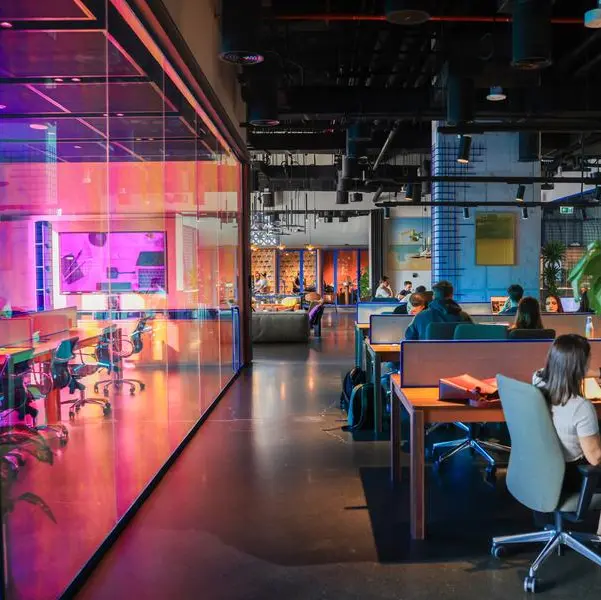- The initiative aims to enhance domestic production, increase self-sufficiency of selected food items, and improve the income of UAE farms without compromising food trade.
- In Phase 1, ten food products and plant varieties will be identified.
- The initiative will be delivered in three phases to provide food products to government and semi-government entities by increasing purchases to 50% by 2023, 70% by 2025, and 100% by 2030.
Dubai: The first session of the National Dialogue for Food Security was launched by the Ministry of Climate Change and Environment (MOCCAE). The session aimed to facilitate constructive discussions between stakeholders, from the government and private sectors, to enhance the food security of the UAE.
The event was organized by the MOCCAE and inaugurated by Her Excellency Mariam bint Mohammed Almheiri, Minister of Climate Change and Environment and His Excellency Eng. Mohammed Mousa Alameeri, Assistant Undersecretary of the Food Diversity Sector at the MOCCAE. The event was attended by a number of local farmers and representatives from the private sector, as well as members of the media.
H.E. Mariam Almheiri said: “Food security is crucial for the UAE and the world, particularly during these times of increasing challenges. In less than three years, we have faced two major crises that have posed significant threats to global food security - namely, the global food supply chain disruptions following the pandemic and global conflicts. Meanwhile, climate change remains the most pressing challenge that impacts development and global food security. These and other challenges emphasize the importance of promoting food security in the UAE and provide momentum to accelerate national efforts towards achieving our goals.”
“We are inspired by the vision of our leadership, which considers food security a national security issue and a driver of economic development. To promote food security, the UAE has taken strategic steps, such as deploying advanced technology to strengthen the local food production sector, enhancing its contribution to closing the food gap and tackling food loss and waste by launching several initiatives like 'Nemah' to promote the sustainability of national farms. These initiatives aim to enhance food security in the UAE by boosting production and marketing effectiveness for local farms, particularly those following a modern and sustainable approach,” H.E. said.
“Being the host nation of COP28 in 2023, the UAE is prioritizing the acceleration of efforts to achieve the objectives of the National Food Security Strategy 2051 through partnerships and solutions that bring a paradigm shift in the agricultural sector and food systems. This will enhance the resilience and sustainability of the food sector," H.E. Almheiri added.
The first session of the National Dialogue for Food Security commenced with panel discussions on various topics, including sustainable agriculture, food suppliers' contribution to the viability of national farms, agricultural innovation, and sustainable marketing of regional agrarian goods.
H.E. Eng. Mohammed Mousa Alameeri stated: “Improving food security is a strategic priority for the UAE and one of the Ministry's main pillars of effort in collaboration with its strategic partners and stakeholders. We strive to develop the agricultural sector and promote adopting and scaling up modern farming systems. This aligns with our strategy to enhance local production and improve food security.”
He added: “The Ministry has established numerous strategies to improve domestic agricultural output, with a top priority being the ongoing development of agricultural legislation and services to achieve food security, as outlined in the National Food Security Strategy 2051. We promote the use of advanced technologies in agricultural production in accordance with the country's climatic conditions, which necessitates the adoption of sustainable agriculture systems, including organic, vertical, and aquatic farming. Additionally, we collaborate with private sector institutions to further develop agricultural markets.”
The National Farms Sustainability Initiative aims to meet the objectives of the National Food Security Strategy 2051 by improving domestic production through securing purchase agreements, raising the nation's self-sufficiency on selected food commodities, and increasing UAE farmer incomes without affecting food trade.
The initiative will develop methods to regulate the procurement of fresh national food products, build a record of the needs of local government and other entities for fresh food products, and the total production by national farms.
It will also prepare a list of national fresh food products and develop a strategy to increase their purchases by government entities. In addition, a systematic method will be rolled out for enterprises specialized in sustainable agricultural production to manage the availability of products from farms.
The initiative collaborates with the Ministry of Climate Change and Environment, local farms, national enterprises, agricultural companies, government and semi-government entities, and private sector institutions.
A working committee was constituted to oversee the initiative's implementation within six months and includes representatives from the Ministry of Defence, Ministry of Interior, Ministry of Finance, Emirates Health Services, General Command of Abu Dhabi Police, Dubai Police, Abu Dhabi Agriculture and Food Safety Authority, and Abu Dhabi National Oil Company - ADNOC.
The initiative aims to develop a sustainable market for national and state-level farms by securing contracts with government and semi-government agencies to supply their annual food and agricultural needs over three phases: first, by increasing the percentage of purchases by government contractors to 50% of the domestic production in 2023; second by increasing it further to 70% by 2025, and third, by increasing it ultimately to 100% by 2030.
In the first phase, ten food products and plant varieties were identified, including red meat, poultry, table eggs, dairy products, dates, Leaf vegetable, tomatoes, cucumbers, peppers, and eggplants. Based on purchase data from contractors, a study is currently being conducted to identify more products for the second phase.
Five leading businesses in the emirates of Abu Dhabi, Dubai, and Sharjah manage the contracts and coordinate with the national farms.
The Ministry of Climate Change and the Environment's recent statistics show that there are currently 38,000 farms operating in the UAE. These farms use various farming methods and agricultural production systems, including organic farming across a total land area of 46,000 dunum and aquatic farms (without soil) in a total land area of 1000 dunum. The total UAE vegetable production is around 156,000 tons annually, with over 500 tons of field crops and feed, and fruit production is about 200,000 tons. The domestic production of vegetables currently meets more than 20% of the total demand in the country, with cucumbers accounting for 80% of the production, driven by the Ministry's endeavors to enhance the productivity of national farms.
-Ends-
About the UAE Ministry of Climate Change and Environment
The Ministry of Climate Change and Environment (MOCCAE) was established in February 2006 as the Ministry of Environment and Water. Under its redefined scope, the ministry has taken on a dual mandate. On the national level, it aims to strengthen the UAE’s efforts in preserving the environment and promoting food diversity in accordance with the nation’s aspiration to emerge as a key benchmark for sustainable development. On the global level, MOCCAE joins international stakeholders in combating climate change and profiles the UAE’s path-breaking achievements in the sector at thought leadership platforms worldwide.
For further details, please contact us: Media@moccae.gov.ae

















